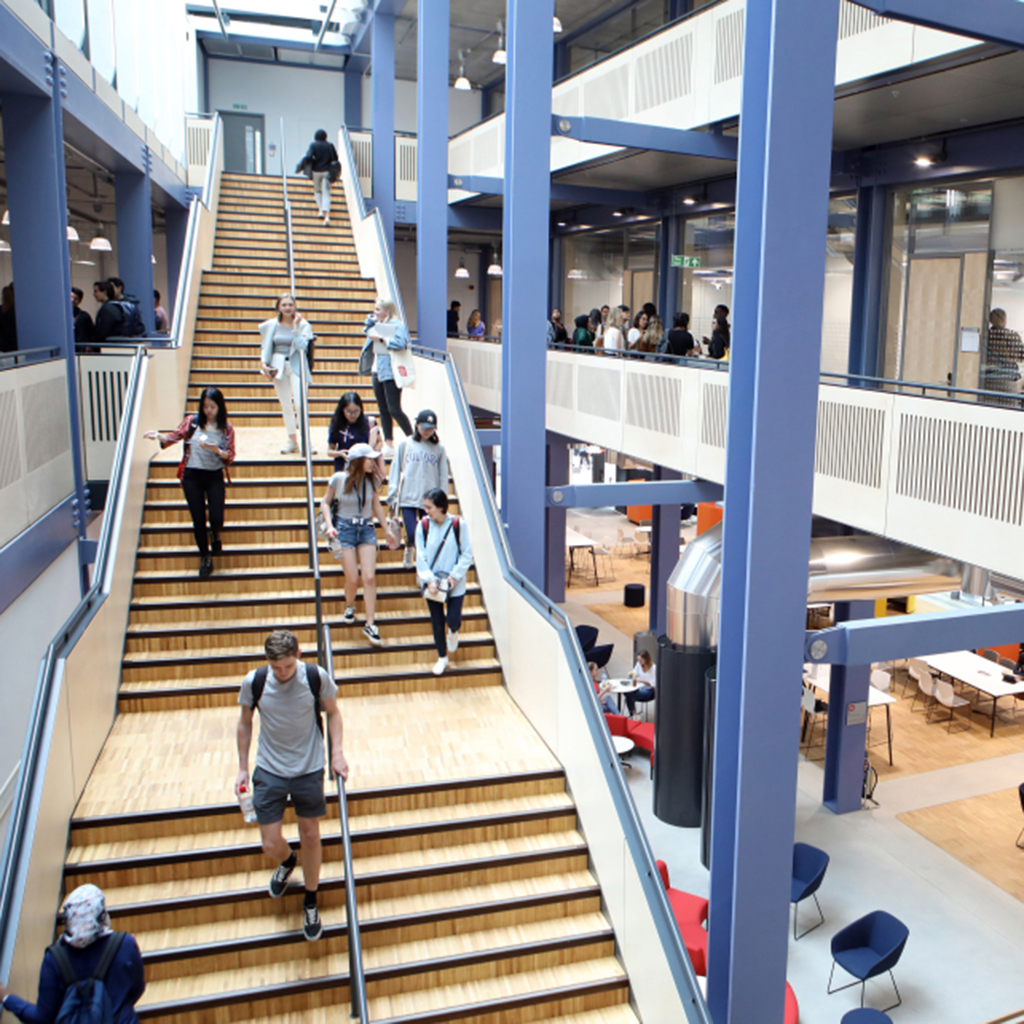Photo credit: LSE in Pictures Flickr
LSE is fairly unique with its focus on social sciences research and as such has identified challenges and opportunities in the market facing development of its innovation and research outputs. The work undertaken over the last 2 years has focussed significantly on breaking down the traditional cultural barriers and misconceptions of what the LSE Innovation Office is there to do and to understand what the academics undertaking the research want to achieve with their research. This activity has shown very clearly that Social Scientists are interested in commercialisation, entrepreneurship and innovation, and in the full range of academic, social enterprise and for profit approaches. We have all had to learn a common language and understand a fairly brave new world of data driven opportunity. Below we outline 5 interesting points for consideration by the wider community.
1. LSE has an extremely active entrepreneurial student community.
They are taught early in their training to think independently and to develop their ideas. LSE have set up the LSE Generate programme to support this demographic within LSE in this space. The programme aims to support and scale socially-driven student and alumni ventures in the UK and across the globe.
2. LSE opportunities are generally complex and require significant due diligence.
At LSE, many of the opportunities coming forward for input from the Innovation Office (LSEIO) deal in the knowledge economy trading in intellectual capital. The types of opportunities that present for LSEIO input are generally complex and require significant due diligence and freedom to operate analysis. The project opportunity and risk must be managed right from the concept stage of the research, with strategic fundamental approaches to how to conduct the research being set at the planning stage. It is important to get these things sorted out right at the beginning, as it is too complex, costly and frustrating to all to correct at the end.
3. Data, data access, data use and GDPR adds complexity.
The LSEIO officers need to have a detailed knowledge to tackle the issues associated data, data access, use and generation and GDPR particularly given the evolving legislative landscape related to data rights. Understanding what you can and cannot do with information that is publicly available but not freely available needs to be taught at all levels so that it becomes second nature. It is a bit like statistics, you need to consider these things from the beginning of the research planning otherwise you are just performing an autopsy as to why you cannot use it.
4. The benefits of a joined-up approach – Consultancy and Innovation.
Many of the opportunities presenting at the LSEIO have a component that runs between the various support services, such as research contracts, skills development, translational funding, strategic external relationships and consultancy that need to be considered. The coordination between these services, an understanding of priorities and language and working together to achieve common outcomes is absolutely necessary support academic innovation. There is a particularly close interaction between the LSE Consultancy office and the LSEIO with a healthy flow through of combined projects that may be led by one or other of the groups depending on the project, academic and market opportunity.
5. To incorporate or not to incorporate, is that the question?
A further point for consideration in the journey to commercialise outputs from the social sciences, is not to incorporate too early. Potentially less investment is required to set up a social science-based business, but it is important to get real advice from experts about the amount of funding required – a proper financial model, business plan, market feedback and strategy for achieving it is still imperative. It is good, where appropriate to adopt the Silicon Valley approach of ‘fail early and do it again but better’, however, comprehensive and rigorous planning is required to deliver a clear opportunity rather than delivering a quick failure.
In conclusion, the commercialisation of the social sciences is not easy, it spans all of the markets and sectors that are serviced from STEM commercialisation. The opportunities sometimes appear fairly close to market but require significant due diligence and freedom to operate analysis. The LSEIO work with colleagues across the academic service sectors to engage early and help in the development of the opportunities that present.




